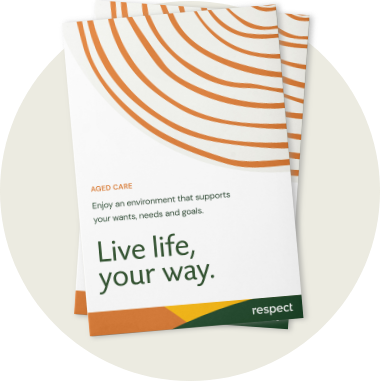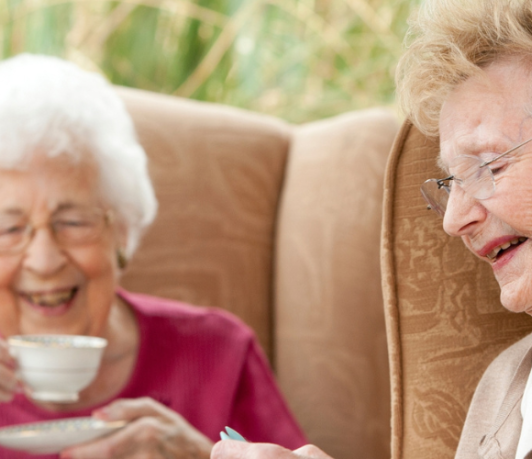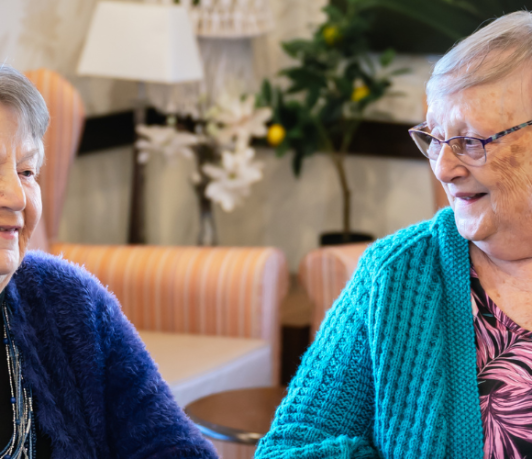The Importance of Having Consistent Caregivers in Home Care
Home Care |

A key benefit of home care is it gives you a lead role in choosing the care services you want to connect with, and how you receive them. Whether you or a loved one is currently receiving home care or looking to apply, one of the biggest considerations you should think about is the value of having consistent caregivers.
But why is it so important? Consistent care, delivered through the right caregivers and service providers, can have a direct impact on the health outcomes of you or a loved one, including emotional wellbeing.
Here, we take a look at the importance of having consistent care givers exactly why consistency and caregiving go hand in hand, by highlighting just some of the positive outcomes you could experience by having a trusted and familiar carer or health professional by your side.
5 Reasons Why Having Consistent Caregivers is Important
For some older people, the transition to any form of aged care or support service can be fraught with complex and difficult feelings. And this can be the case when they begin home care too.
They may be reluctant to accept help or direct assistance from somebody else, especially someone they may not be familiar with or who is outside their close circle of family and friends. Others may feel hesitant about the prospect of engaging with a new health care professional or caregiver, having been so used to relying on their family doctor in the past for all health-related issues.
Some individuals may also harbour feelings of nervousness about developing a bond with a caregiver or team of health care professionals that they perceive as being temporary.
If you or a family member is looking into the available home care opportunities, one of the best ways to counteract such feelings is through having consistent caregivers. Especially if they are someone you emotionally gel with, a reliable and familiar face will boost feelings of trust, which we know is so important in the client-caregiver relationship.
A sense of trust can help boost your health outcomes. For example, you will almost certainly be more likely to listen to health advice from a trusted source — and particularly if this involves exercises or other directions away from the caregiver’s eye, it will help boost compliance too.
A regular carer who knows you well will also be better placed to provide you with the emotional support you need as you continue receiving care through your home care journey.
1. Develop strong and meaningful communication
Communication is key in the client-caregiver relationship, and this is one of the biggest advantages that having consistent caregivers can bring to the table.
It’s only natural that you will feel more comfortable speaking openly with a carer or health professional you trust. So if your caregiver is someone you’re familiar with, and enjoy a positive rapport with, it will create a safe environment where you’ll feel comfortable letting them know exactly how you’re feeling, being vulnerable, and sharing any concerns or issues.
On the other side of the relationship, a carer will appreciate this dynamic too, as they grow to understand the type of communication and support that works best for you.
A regular caregiver will also encourage good communication with your family members and loved ones. In an ideal world, your family members should also enjoy an open line of communication with your caregiver — so they too can alert them of any concerns, potential red flags, and share relevant updates.
In some cases, you may even one day consider a regular caregiver as another member of your family, and a big part of this positive relationship is about fostering strong communication across your entire support network.
2. Choose and stick to your preferred routine
We all find comfort in familiarity. Over time, working with a regular caregiver will allow you both to develop a routine, which can be followed each time they are providing you with care. This may include breaking their support up into blocks of activities or services, so you know what each session’s plan is and the type of help you will receive each day.
This consistency provided by a familiar carer also supports the development of long-term goals. If you have any goals or aspirations in mind that you want to work towards, a regular carer may be able to support you with this ambition by creating a plan over time and working towards it. This could include a physical achievement (strengthening your balance, walking further outside) or a lifestyle change (getting involved in more social activities, eating healthier). Whatever your goal, a carer who is there week in, week out, can provide you with strength of support.
Consistent caregivers are also more likely to stick to a schedule and ensure availability for future sessions, as they come to know and anticipate your requirements and preferences. In some cases, they may proactively block out the times and dates in their calendar that they know tend to work best for you and your caregiving demands.
3. Reduced risk of accidents
It goes without saying that a regular caregiver who understands your care needs inside, out is far more likely to avoid potential accidents when compared with somebody who doesn’t have that same level of experience and connection with you.
For example, many home care clients require regular medication, to be taken as prescribed and on an accurate and timely schedule. Often caregivers assist with this, whether it’s through direct administration, reading labels, divvying up dosages or creating reminders. Even the slightest error can cause an unfortunate mishap, and this can often be avoided by a familiar caregiver who has a strong understanding of the care recipient’s requirements.
Similarly, if it’s part of your chosen home care services, carers may also support you with meal preparation and grocery shopping. Again, a caregivers’ intimate knowledge of your dietary requirements may avoid accidental mistakes and issues.
4. Identify any red flags early on
When a caregiver sees you regularly, they are significantly more likely to notice subtle changes which could signal poor health or a developing health issue.
Sometimes the red flags of deteriorating health can fly under the radar – even for the person experiencing the changes themselves. But someone in a caregiving role, who is seeing a client regularly, is so often in the best possible position to observe even the most subtle of changes.
For example, a caregiver may notice that you’re less balanced than usual or uneasy on your feet. Additionally, they may notice you’re speaking differently than normal and potentially recognise these behavioural changes as the early warning signs of a stroke.
Whatever the cause of issues, the early detection of red flags can lead to early healthcare support and medical attention. And in some cases, it just may be life-saving.
5. Keep your peace of mind
Particularly if you are a family member of a care recipient, the best gift a trusted caregiver can give you is the knowledge that your loved one is being looked after and safely receiving the support services they need.
This is especially important for frail older adults, who may have physical limitations or complex needs (for example, someone with Alzheimer’s disease).
Of course, it’s important to understand that experiencing a change in caregivers is somewhat inevitable, as there will be sick days, leave days, and changing personal circumstances, which will all impact a carer’s availability and scheduling.
This is one of the reasons why it’s so important that you choose a home care provider with a strong culture that you’re happy with, as you need to feel assured that if there are any changes required to your care plan, they’ll be there for you with an appropriate solution.
Take the Next Step
At Respect, we’re passionate about providing care to older Australians and ensuring the next phase of their lives is filled with purpose and possibilities.
We deliver a range of services, all individualised to your needs. Our services include nursing and clinical care, personal care, balance and mobility support, domestic assistance and individual social support.
We understand the Home Care Package application process can be complicated and time-consuming, so if you or a family member is finding it hard to get started, please know our care coordinators are here to give you a helping hand.
We’re here to help! For more information about how to access a Home Care Package and get started with home care, including the available opportunities and Respect’s range of services, download our digital brochure. If you would like to connect with a member of our team, please call 1300 144 144 or email gethomecare@respect.com.au

Book your free no-obligation consultation call
Simply fill in the below form and one of our expert Care Advisors will give you a call within 48 hours to discuss your home care options.
Would you rather talk to us? Give us a call on 1300 144 144




